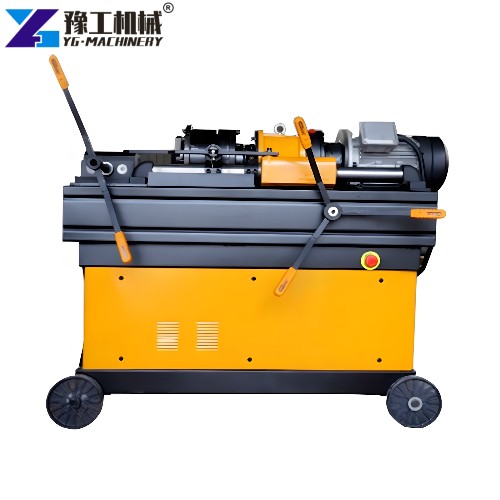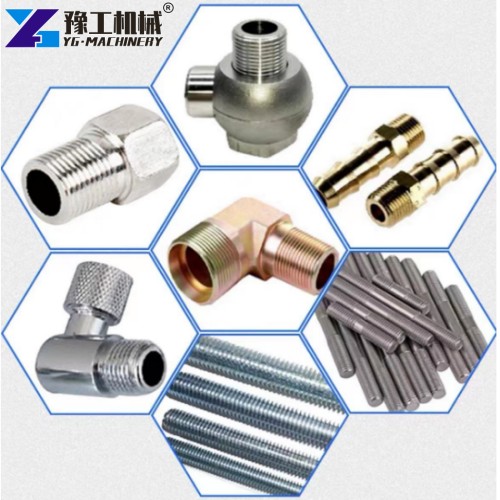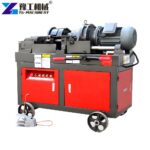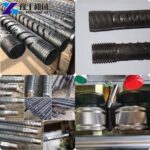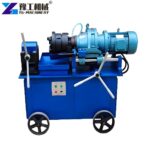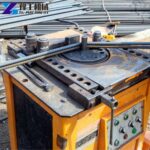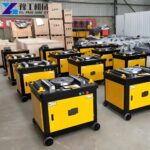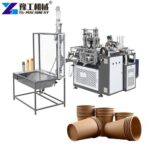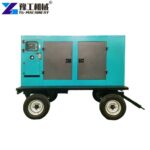When purchasing industrial equipment, the primary concern for most customers is the thread rolling machine price. However, focusing solely on the initial cost can lead to higher expenses down the line. A machine that seems cheap might have hidden costs in efficiency, durability, or maintenance. Therefore, a comprehensive evaluation is crucial. This article will explore the key factors that influence thread rolling machine price and provide a professional purchasing guide.
Five Key Factors Influencing Thread Rolling Machine
The thread rolling machine price is not just one number. It is determined by several factors, and so understanding them can help you make a smarter investment.
- Machine Type and Technology: Different types of rolling machines have different costs. For instance, a hydraulic thread rolling machine price is often higher than a mechanical one, because it offers more stable pressure and higher precision. Similarly, specialized equipment like a rebar thread rolling machine will have a different price due to its specific design.
- Automation Level and Features. The level of automation is another critical factor. A small thread rolling machine might have basic functions and a lower price. Conversely, machines with advanced features like automatic feeding and retraction can significantly boost production efficiency, and so they come with a higher price tag.
- Core Components and Manufacturing The rolling dies and hydraulic system are at the heart of a thread rolling machine. High-quality, wear-resistant materials and precise manufacturing processes ensure stable and long-lasting operation. While this may increase the initial thread rolling machine price, it drastically reduces maintenance costs and downtime in the long run.
- Brand and Service Reputable brands typically have stronger R&D capabilities and better after-sales service, which is reflected in the thread rolling machine price. However, this means you get reliable technical support and spare parts supply, ensuring your production continuity.
- Machine Specifications and Performance The machine’s load capacity, processing diameter range (e.g., 16-40mm), and processing speed directly affect its productivity. As a rule, machines with larger specifications and higher performance will have a higher thread rolling machine price.
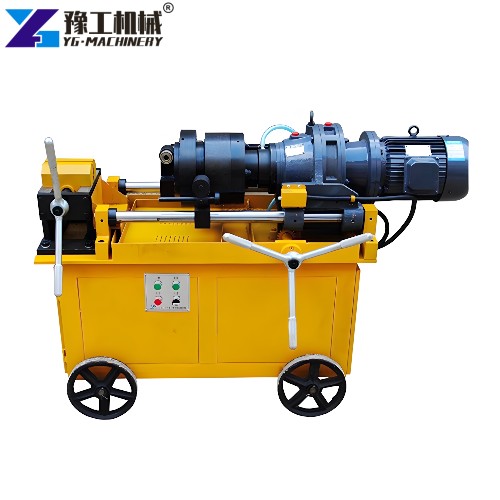
Thread Rolling Machine Parameter:
| Model | YGS-40 | YGT-40 | YGA-40 |
| Processing diameter range | 16-40mm | ||
| Thread rolling length | 0-80mm | 0-80mm | 0-100mm |
| Power voltage | 4kw/380v 50hz | 4kw/380v 50hz | 7.5kw/380v 50hz |
| Working efficiency | 15s/forming | 8s/forming | One-touch auto forming |
| Machine weight | 320kg | 350kg | 400kg |
| Machine size | 115*50*106cm | 110*60*130cm | 126*70*106cm |
| Type | Standard type | Upgrade type | Full automatic type |
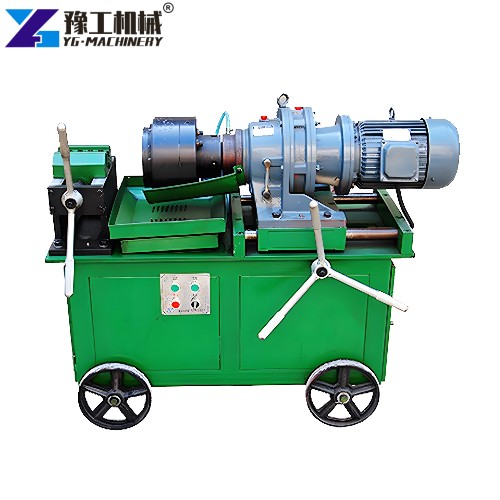
Thread Rolling Machine Q&A
Value isn’t just about the price. You must consider the machine’s processing efficiency, product quality, failure rate, and after-sales service. A machine with a moderate price but stable performance and excellent service is likely a better long-term investment.
A hydraulic machine uses a hydraulic system to provide stable and adjustable pressure, ensuring consistent thread depth. A mechanical machine relies on mechanical transmission, which makes precise pressure control more difficult.
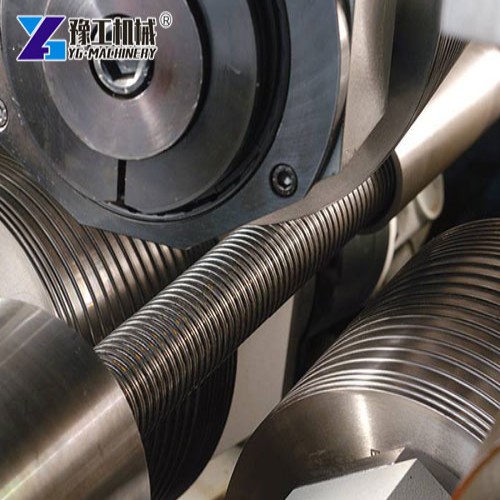
Thread Rolling Machine in Action: A Case Study
When our clients are choosing equipment, we always recommend a suitable model based on their specific needs.
Case Study: Amin, a construction company manager in the USA, was facing a challenge: he needed a machine that could handle various rebar specifications for several large projects. Initially, he only considered the low rebar thread rolling machine price, but found its efficiency couldn’t keep up with the project timeline.
Based on our advice, he chose a multi-functional, highly automated hydraulic thread rolling machine from YG. Even though the initial hydraulic thread rolling machine price was slightly higher, because the machine could peel and roll threads in a single pass and was compatible with multiple rebar sizes, their threading efficiency improved by 40%, and the defect rate dropped by 10%. Ultimately, this investment helped him accelerate all his projects and significantly increased profitability.
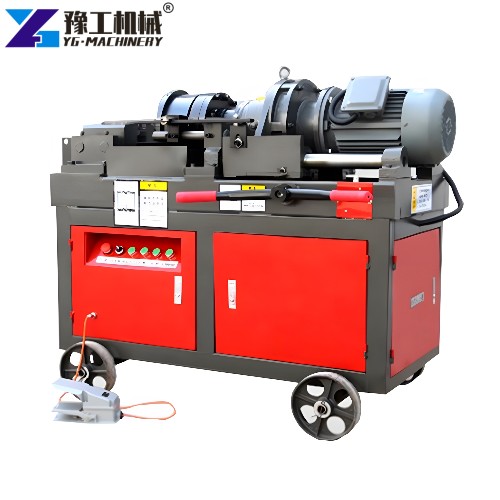
Diving Deeper into the Thread Rolling Machine
1. How do I choose the right rolling machine for my project?
First, determine the material type and diameter range you need to process. Next, consider your production volume and automation needs. If you require high-volume, high-precision output, we suggest an automated hydraulic rolling machine. Finally, the budget is important, so we offer various models to meet different customer needs.
2. Why are YG’s rolling machines a great value?
Although our initial thread rolling machine price might not be the lowest, we provide superior performance and durability. Our machines use high-strength materials and precision manufacturing, ensuring long-term stable operation. Furthermore, our machines are low-noise and easy to use, which significantly reduces labour intensity.
3. How important is after-sales service for a thread rolling machine for sale?
Purchasing a machine is just the beginning. Excellent after-sales service is key to keeping your equipment running smoothly. We promise to provide 24/7 technical support, fast spare parts delivery, and regular maintenance to ensure your machine is always in top condition.
Get Your Exclusive Thread Rolling Machine Price Today!
Still struggling to choose the right thread rolling machine? Contact us now to get a detailed thread rolling machine price! In addition, learn more about our other products like our hydraulic thread rolling machine and pipe thread rolling machine.
Visit our website to explore more products:
- Pipe Threading Machine
- Rebar Upsetting Machines
- Steel Hoop Bending Machines

